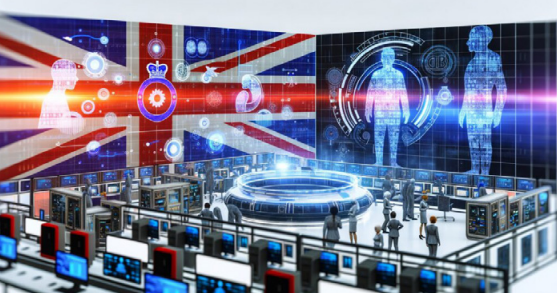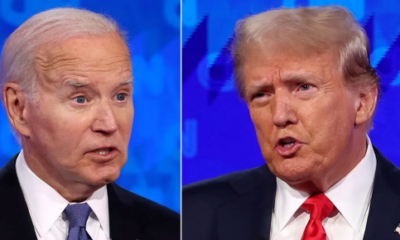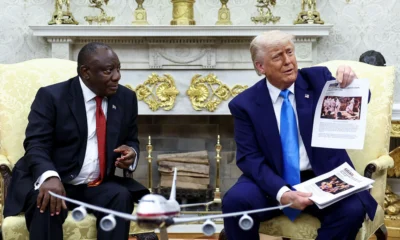Tech
UK Regulator Launches Probe Into Microsoft’s AI Deals

The UK’s competition watchdog, the Competition and Markets Authority (CMA), has launched an investigation into Microsoft’s acquisition of AI companies, citing concerns over the tech giant’s growing dominance in the artificial intelligence market.
The CMA announced that it had opened a preliminary investigation into Microsoft’s recent AI-related deals, including its purchase of Nuance Communications, a speech recognition firm, and its investment in OpenAI, a leading AI research organization.
The regulator said it was examining whether Microsoft’s acquisitions and investments in AI companies could harm competition in the UK, potentially leading to higher prices, reduced innovation, and decreased choice for consumers.
The CMA’s investigation is the latest scrutiny of big tech’s AI ambitions, as regulators worldwide increasingly focus on the potential risks and implications of AI on competition and society. Microsoft’s Nuance deal, valued at $19.7 billion, was completed in March 2022, while its investment in OpenAI was announced in January 2023. The tech giant has been expanding its AI capabilities through various acquisitions and partnerships, aiming to integrate AI into its products and services.
The CMA’s probe will assess whether Microsoft’s AI deals could result in the company gaining too much market power, potentially stifling innovation and competition in the AI sector. The regulator has invited comments from interested parties and is expected to decide whether to proceed with a full investigation in the coming weeks.
This development highlights the growing regulatory scrutiny of big tech’s AI ambitions, as companies like Microsoft, Google, Amazon, and Facebook invest heavily in AI research and development.
The UK’s CMA has been actively monitoring the tech industry, recently investigating Google’s dominance in the digital advertising market and Amazon’s acquisition of MGM Studios.
As AI technology advances and becomes increasingly integrated into various industries, regulators are grappling with the potential implications for competition, data privacy, and society as a whole.
The outcome of the CMA’s investigation could have significant implications for Microsoft’s AI strategy and the broader tech industry, as regulators worldwide continue to navigate the complex landscape of AI regulation.
Tech
Lendsqr Develops AI Model to Determine Creditworthiness

A Nigerian lending software startup, Lendsqr, is building an artificial intelligence model that analyzes borrowers’ voices and faces to determine if they qualify for a loan.
The model aims to facilitate easy lending processes and benefit both lenders and borrowers.
According to statistics, only 6% of Nigerian adults have formal credits, and fewer than 12% of the country’s 41 million small businesses have access to credit, despite Nigerian banks consistently reporting record deposits.
Lendsqr’s AI model seeks to address these issues by providing an alternative method of credit evaluation.
The AI model will ask borrowers questions about their jobs and how they intend to pay, and they will respond either by video or voice.
The model will then predict whether the borrower will repay or default.
According to Adedeji Olowe, Lendsqr’s CEO, the model will help lenders judge borrowers’ capacity to repay the loan and their intention to repay.
The company plans to expand credit access not just in the Nigerian market but also to other countries, including Canada, to support migrants and new students.
“Africa is the primary target because this is where the problem is largest,” Olowe said.
The model has shown promising results, with an accuracy rate of 76% in previous tests.
Lendsqr plans to release the model when it reaches 90% accuracy.
The company will also make its research findings public and allow competitors to use the data to power their loan engines.
Tech
Moove Set to Join Unicorn Club with $300m Funding

Lagos-based mobility fintech startup, Moove, is on the cusp of joining the coveted unicorn club after announcing plans to raise $300 million in equity funding.
This move is expected to propel the company’s valuation beyond $1 billion, solidifying its position as one of Africa’s most promising startups.
Moove’s innovative financing model, which links repayments to drivers’ earnings, has fueled its rapid growth.
The startup has expanded to 13 markets, including the UAE, India, and Mexico, and has helped drivers get cars without upfront capital since its launch in 2020.
With over $409 million already raised in debt and equity, Moove’s growth trajectory is impressive.
The startup’s annual revenue has surged from $115 million to $360 million in just over a year, demonstrating its potential for further expansion.
This growth has been driven by its core business of vehicle financing for ride-hailing drivers and its growing fleet management operations in the US.
The planned funding round will support Moove’s expansion in key growth markets and help it scale its electric vehicle (EV) fleet offerings.
The company has already made significant strides in the EV space, managing fleets of autonomous vehicles in Phoenix and Miami for Waymo, Alphabet’s self-driving vehicle division.
Moove’s success story is a testament to the growing confidence of investors in African startups.
The company joins a select club of African startups, including Flutterwave, Andela, and Chipper Cash, that have reached billion-dollar valuations while building solutions from the continent for the world.
Tech
The WhatsApp Hack: How Your Account Can Be Compromised In Minutes

A growing number of WhatsApp users in India are falling prey to hacking, with experts warning of a rising threat to online security. Shantanu Gupta, a noted author and political analyst, recently had his WhatsApp account hacked, highlighting the vulnerability of the popular messaging platform. Gupta’s account was compromised during a routine train journey, with the hacker gaining access to his contacts and sending messages demanding money.
Despite regaining control of his account within hours with the help of the police, Gupta expressed frustration with Meta, WhatsApp’s parent company, and his network provider, Airtel, for their lack of support and security measures. “What shocked me was how easily my account was compromised,” Gupta said. “All they needed was my phone number and access to the voice OTP, and they could configure WhatsApp on another device. It’s unsettling that my network provider didn’t even verify or send a warning SMS before allowing such a crucial call to be redirected.
“Gupta’s experience is not an isolated incident. Manish, another WhatsApp user, has been facing a strange issue where his account is taken over every night, with unusual activity occurring, including the creation of WhatsApp groups with unknown numbers. Despite enabling two-factor authentication, Manish has been unable to prevent the hacking.
“I’m at my wit’s end,” Manish said. “Every morning, I have to request a review from WhatsApp and regain access to my account. It’s like someone is playing a game with me, and I don’t know how to stop it. “Experts warn that WhatsApp hacking is a growing threat, with attackers using social engineering, technical exploits, and SIM-based attacks to hijack accounts.
Common hacking methods include OTP phishing, SIM swapping, WhatsApp Web hijacking, and call merging scams. “WhatsApp hacking is a serious concern, and users need to be aware of the risks,” said Gautam Kumawat, a professional hacker and founder of Hacking Flix.
“Attackers are using sophisticated methods to gain access to accounts, and users need to take proactive steps to protect themselves.” To safeguard against these threats, experts recommend enabling two-factor authentication, using a SIM PIN, regularly checking linked devices, and being cautious when receiving unexpected OTPs or calls.
Users should never share their six-digit PIN with anyone, not even friends or family,” said Shiv Raj, Additional Superintendent (ASP), Banda district, a cybercrime expert and PPS officer of Uttar Pradesh Police. “They should also be wary of suspicious links or messages asking for personal information.”
In response to the growing concern, a Meta spokesperson emphasized the company’s commitment to user safety, advising users to never share their six-digit PIN and to enable two-step verification for added security.
“WhatsApp continues to invest in technology, safety tools, and resources to help users safeguard themselves from online scams,” the spokesperson said. “We advise people to be cautious when receiving un-expected OTPs or calls and to report any suspicious activity to us immediately.”

-

 News7 days ago
News7 days agoInsecurity: US Spy Plane Begins Operations in Nigeria
-

 News7 days ago
News7 days agoTinubu Sends 32 Additional Ambassadorial Nominees to Senate for Confirmation
-

 Politics6 days ago
Politics6 days agoUS Shooting Sparks Controversy Over Afghan Vetting as Trump Blames Biden
-

 Analysis7 days ago
Analysis7 days agoAs G20 Moves On Without America, by Alabidun Shuaib AbdulRahman
-

 News6 days ago
News6 days agoIsraeli PM Netanyahu Seeks Presidential Pardon Amid Ongoing Corruption Trials
-

 News7 days ago
News7 days agoUS–South Africa Rift Deepens Over G20 Boycott and Diplomatic Snubs











